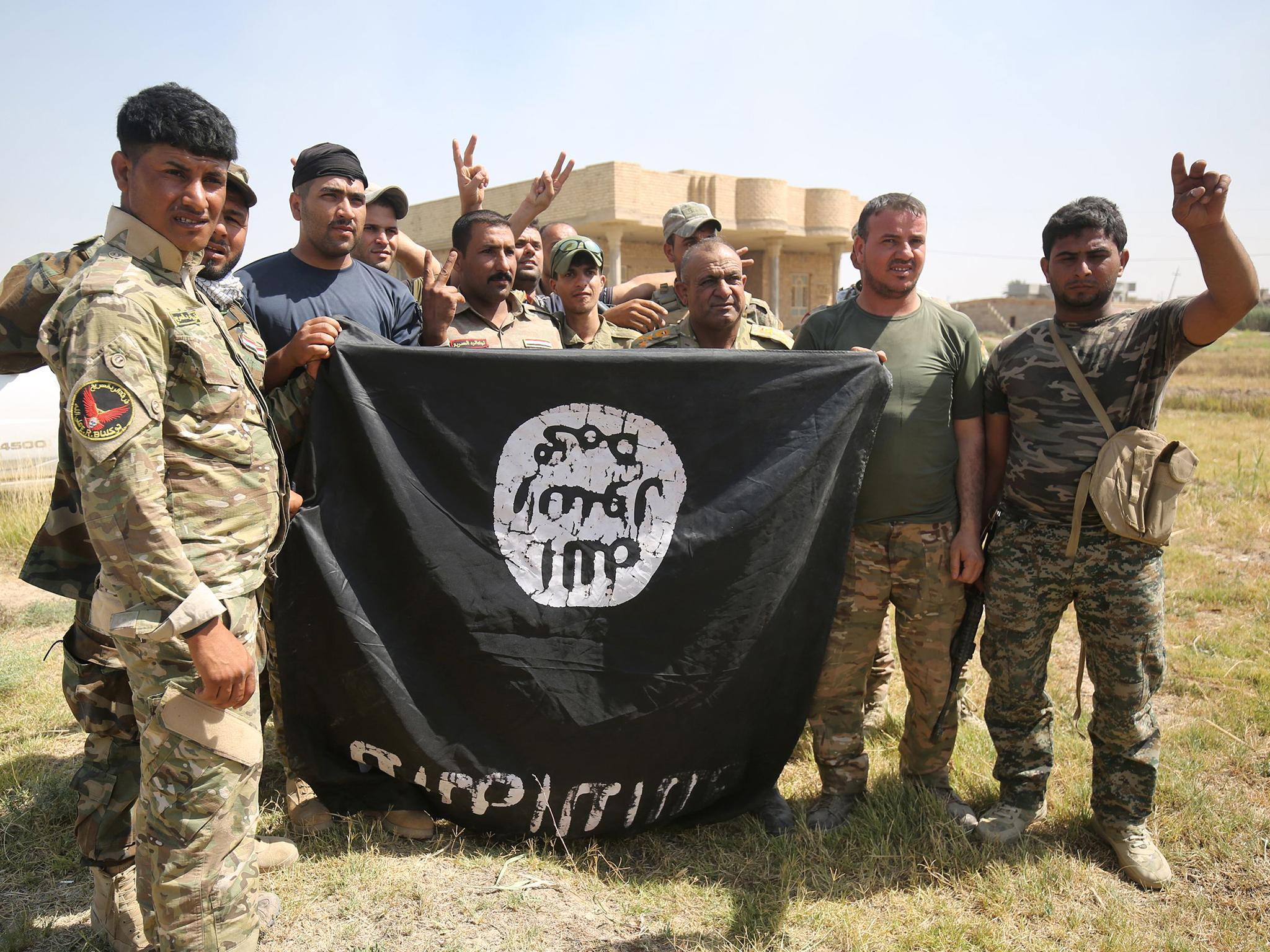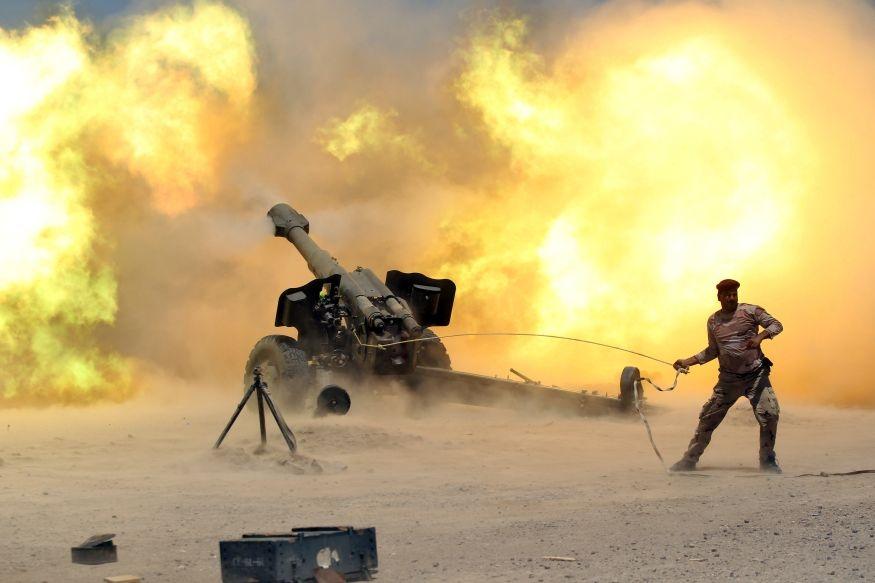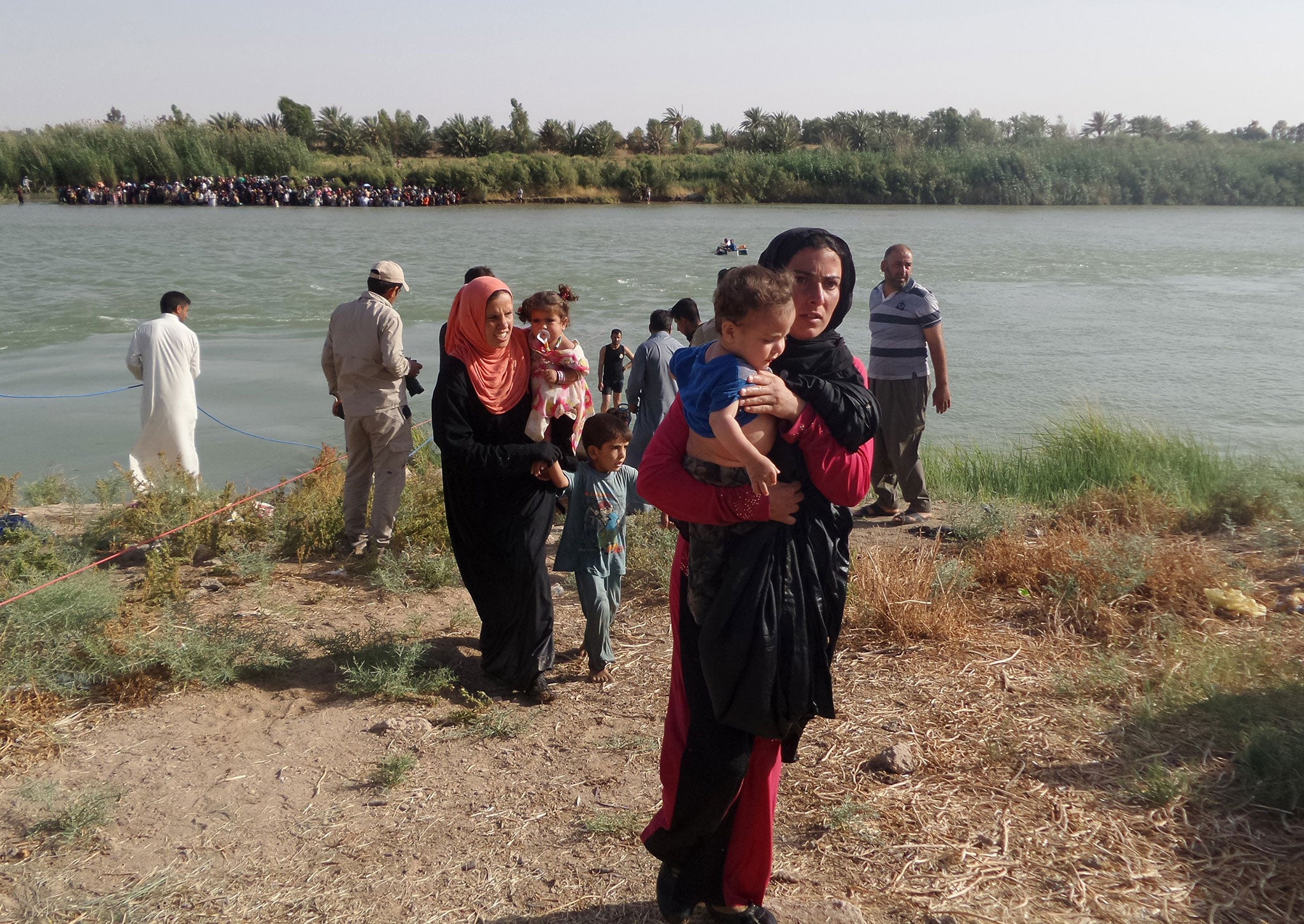Isis in Fallujah: Starving families forced to eat pet food to survive during brutal siege of Iraqi city
Families have also reported being shot at and abused while attempting to flee
Families fleeing Fallujah have told how they were forced to eat animal food to stave off starvation during a brutal siege of the Isis-held city.
A woman who managed to reach a refugee camp with her children said they moved from one home to another to avoid battles until they were caught in the crossfire.
“We have witnessed tragedies that no one should ever witness,” she said in an interview with the Norwegian Refugee Council (NRC).

“I was shot and I’ve been unable to walk for three months. My children were shot as well and we were forced to leave our homes.
“We used to eat animal food and we did not have any water.
“Our homes were broken into, bombings and shellings on top of our heads…we moved from one plane to another in Fallujah until we were trapped.”
She and her children are now among more than 3,000 families living in displacement camps as fighting continues to rage between militants and Iraqi security forces and militias attempting to retake the city.
Routes out of Fallujah have been barred for civilians since December and Isis tightened its grip as the Iraqi government advance started last month.
Stories of extreme desperation have emerged, with rocketing food prices of more than $40 for a kilo of flour forcing people to search rubbish and eat rotten food.

“Since December, food has been in short supply, people are relying on expired rice and dried dates, and several starvation-related deaths have been reported,” UNHCR spokesperson Melissa Fleming said.
Save the Children said the price of a single can of infant milk had hit £35 at times during the siege and that potatoes and sugar cost between ten to fifteen times more than normal, forcing families to eat soup made from grass or a handful of seeds.
Some residents have reportedly killed themselves, while parents are said to have drowned their children in the river or abandoned them because they could not feed them.
Humanitarian agencies estimate that around 50,000 civilians remain trapped in a mounting “human catastrophe” in Fallujah, while those trying to flee risk being killed by Isis or alleged mistreatment by groups supporting the Iraqi security forces.
Hasna, a 50-year-old mother of seven children, said she saw 16 people shot dead as the group of refugees came under attack while fleeing.
Having seen a pregnant woman accidentally killed during battles inside the city, her family came under fire from what she described as “armed opposition groups” as they attempted to cross a river to safety.

“As soon as we reached the river, the armed opposition groups started shooting at us,” she said. “Sixteen people from our group were killed and my daughter is in hospital now as her kidney was wounded during the chaos.
“As soon as we started crossing, we got shot by Isis from behind…three men came out of nowhere and started shooting at us.”
The NRC said it has received several allegations of armed groups shooting at civilians as they attempted to cross the Euphrates River, causing families to take tragic risks.
An unknown number of men, women and children have drowned, while witnesses said they saw three children put in an open fridge in an attempt to protect them in the water before it sank, killing them all.
Footage has also shown members of Shia militias fighting in support of the Iraqi government separating male refugees and mistreating them while holding them captive.
Around 21,000 people in 3,500 families had reached displacement camps in Amiriyat Al Fallujah over the past fortnight, pushing them almost up to full capacity as food, safe drinking water and other basic supplies run out.
The UN High Commissioner for Human Rights is urging the Iraqi government to ensure that all people fleeing Fallujah are treated in strict accordance with human rights and international law.
“There are extremely distressing, credible reports that some people who survive the terrifying experience of escaping from Isis, then face severe physical abuse once they reach the other side,” Zeid Ra’ad Al Hussein said.
“Eyewitnesses have described how armed groups operating in support of the Iraqi security forces are intercepting people fleeing the conflict, separating the men and teenage boys from the women and children, and detaining the males for ‘security screening’, which in some cases degenerates into physical violations and other forms of abuse, apparently in order to elicit forced confessions.
“There are even allegations that some individuals have been summarily executed by these armed groups.”
Mr Hussein said that although there is a legitimate interest in vetting people fleeing Isis-controlled areas for security risk, people must be treated as civilians and in accordance with Iraqi law in the absence of “clear and cogent evidence”.
More than 22,000 civilians have been killed and 43,500 wounded in Iraq since Isis’ advance in early 2014.
The UN said the casualty estimates were considered an absolute minimum as they do not include Anbar Province, where Fallujah is located, or those dying from died from starvation and other secondary effects of the conflict.
Government forces entered southern Fallujah this week for the first time in more than two years as troops continued to fight house-to-house battles against Isis militants.
Prime Minister Haider al-Abadi promised a swift victory when he announced the start of the operation on 22 May but the complexity of the task quickly became apparent.
British air strikes are among those hitting the city as part of the US-led coalition as Isis continues to use the civilians trapped inside as human shields.
Join our commenting forum
Join thought-provoking conversations, follow other Independent readers and see their replies
Comments